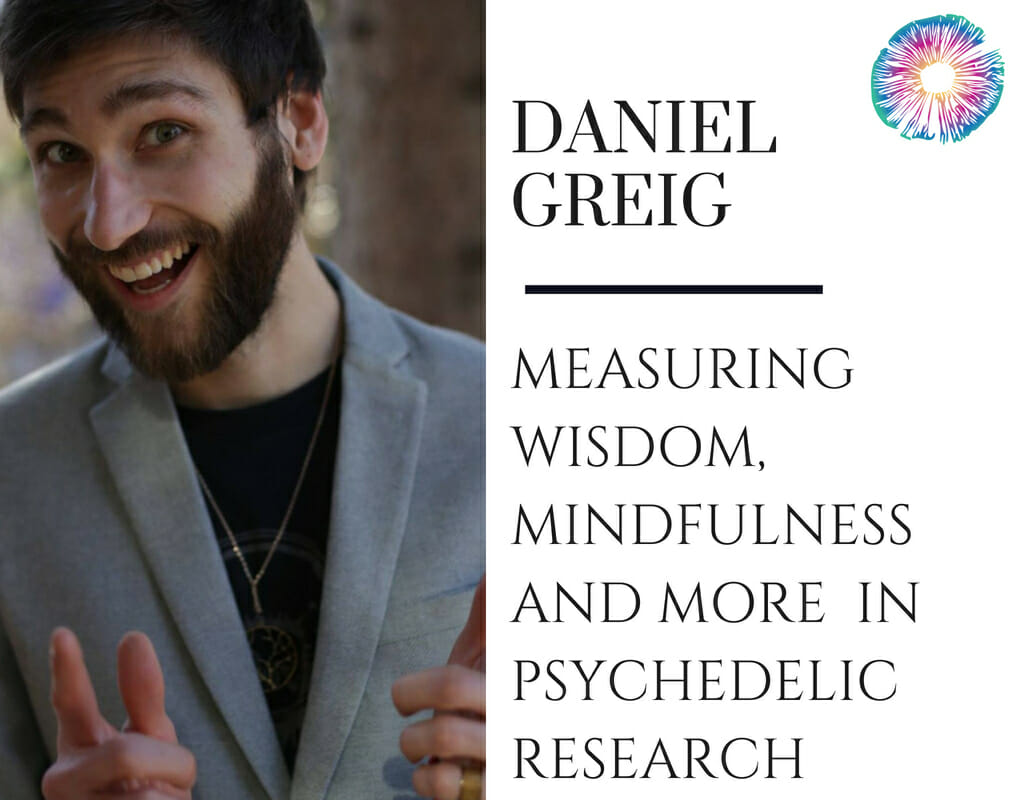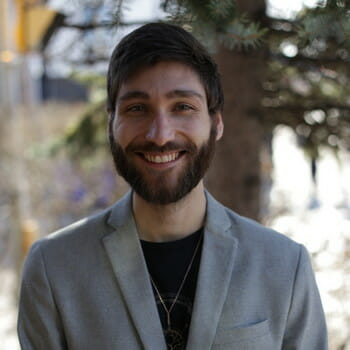
In this episode of Psychedelics, Kyle and Joe talk with Daniel Greig. Daniel is a student at the University of Toronto and psychedelic community organizer working with CSSDP and the Toronto Psychedelic Society.
We go all over the map but some notable things discussed in this episode include:
- Measuring wisdom
- Mindfulness
- The promise of psychedelics
- Future research opportunities
- How friendly the University of Toronto is to psychedelic research
- Interesting philosophical overlaps with psychedelics and occultism
- and much more!!
Show Notes:
- How did you get involved in researching psychedelics?
- He never had to hide or be discreet about his research interests.
- People are actually interested in his research work.
- Canada just legalized marijuana countrywide.
- He started experimenting with psychedelics when he was around 18.
- He was able to feel positive emotions again after psychedelics.
- Are there any recent studies that have you excited?
- There was a publication in 2017 that looks at the role of mental imagery under the influence of LSD.
- Daniel is interested in “what is the function of the imagination.”
- What you get on LSD is similar to what happens during REM dreaming.
- We’re not very in touch with our imaginative experiences.
- How are you viewing mystical experiences?
- Mental imagery is just reverse perception.
- Mental imagery begins in higher processes and sends information down.
- We share the faculty and functions of imagery with other animals.
- How can you engage in some of this mental imagery?
- There’s a process called active imagination.
- Practicing active imagination helps you make the most of imagistic experiences.
- It can be helpful to have someone else guide you through the images.
- The most important thing is – is it effective?
- Do you think what’s happening on the physiological level in the mind is a therapeutic part of psychedelics or imaginative?
- It’s different for everybody.
- For people with depression, it’s important to get the physiological tuned up.
- For others, it’s the imagination that unlocks other things.
- The developmental line we should all be orienting ourselves toward is wisdom.
- The relationship between rationality in psychedelics.
- You have to ask is psychedelics make you more rational?
- Mindfulness can be seen as a form of rationality that makes you open to information.
- Daniel talks about the computational mind, the algorithmic mind, and the reflective mind.
- Authoritarianism is related to people’s fear.
- Can psychedelics promote irrational thinking?
- Yes, it’s one of the dark sides of the unitive experience.
- There’s the feeling that you really know what’s true, but you can’t really articulate it.
- Don’t try to annihilate yourself so nature can flow through you, elevate yourself.
- How can people get involved?
- Follow your heart and don’t disguise what you want to do.
- Be enthusiastic and also correct.
- Try to emphasize academic rigor.
Episode Quotes
We’re very much detached from our own traditions here in the west.
Just imagining practicing something can have just as much of an effect of your performance than actually practicing it.
You have to bring your insights back into the community to be an effective member of society.
There’s a strong relationship between wisdom and psychedelics.
Without intervention, life will tend toward suffering.
Links
- Youtube – Daniel Grieg
- Academia.edu
- LSD Increases Primary Process Thinking via Serotonin 2A Receptor Activation
- Clinical Interpretations of Patient Experience in a Trial of Psilocybin-Assisted Psychotherapy for Alcohol Use Disorder
- Wisdom
- A route to well-being: intelligence vs. wise reasoning
- Wise Reasoning in the Face of Everyday Life Challenges
- Monika Ardelt’s Model of Wisdom
- Development Lines – Ken Wilbur – Wiki

- Marta Kaczmarczyk – Entity Contact
- Paper: Mental Imagery: Functional Mechanisms and Clinical Applications
About Daniel Greig

Daniel is a student of Cognitive Science and Philosophy at the University of Toronto. His focus is on mysticism, magic and the psychedelic experience through the lens of psychology and neuroscience. Daniel also works with the Canadian Students for Sensible Drug Policy (CSSDP). He has also spoken at a number of conferences and educational events in Toronto on the subject of psychedelics and philosophy.


